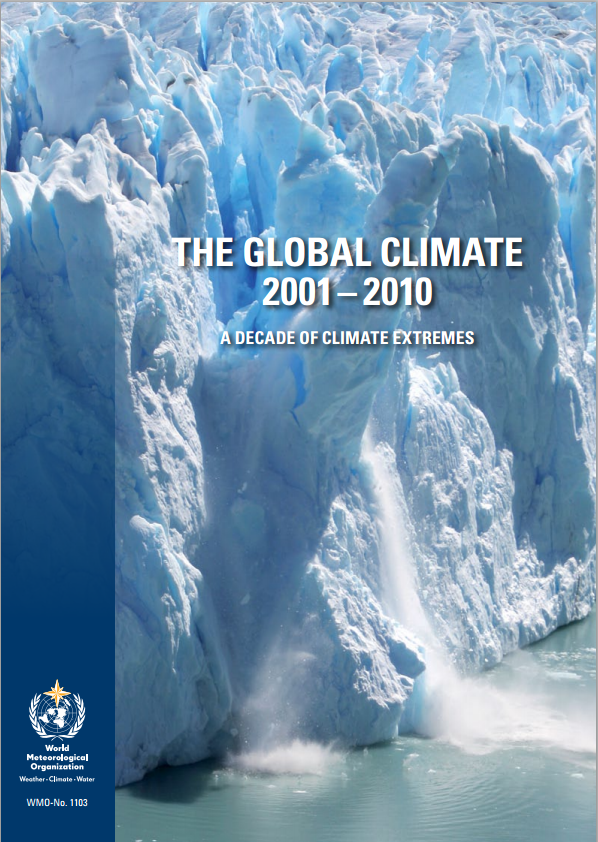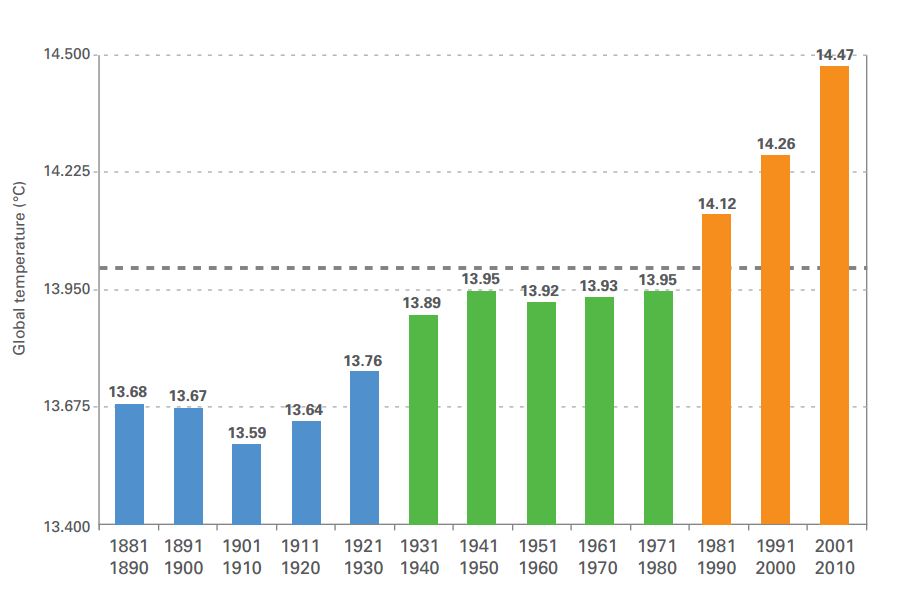|
Coinciding with the First Session of the Intergovernmental Board on Climate Services[Note] held in Geneva in early July, the World Meteorological Organization (WMO) released a report on The Global Climate 2001-2010, A Decade of Extremes on 3 July 2013. This 100-page report incorporates findings on global and regional temperature and rainfall, as well as extreme events during the decade of 2001-2010, from 139 National Meteorological and Hydrological Services and several United Nations agencies and partners.
Globally, the 2001-2010 decade was the warmest since 1850. The warm anomaly was accompanied by a rapid decline in Arctic sea ice and accelerating the loss of net mass from the Greenland and Antarctic ice sheets and from the worlds glaciers. The widespread melting of glaciers and ice sheets and thermal expansion of sea water also led to a continuous rise in sea level. The decade was also rather eventful in terms of climate extremes and record-breaking phenomena, including the heat waves in Europe and Russia, Hurricane Katrina in the United States of America, Tropical Cyclone Nargis in Myanmar, floods in Pakistan, and droughts in the Amazon basin, Australia and east Africa.
The WMO press release and the executive summary of the report are available from the links below:
http://www.wmo.int/pages/mediacentre/press_releases/pr_976_en.html (Press Release)
http://library.wmo.int/pmb_ged/wmo_1119_en.pdf (Executive Summary)

http://library.wmo.int/pmb_ged/wmo_1103_en.pdf
Decadal global combined surface-air temperature over land and sea-surface temperature (?C) obtained from the average over the three independent datasets maintained by the UK Met Office Hadley Centre and the Climatic Research Unit, University of East Anglia, in the United Kingdom (HadCRU), NOAA-National Climatic Data Center (NCDC) and the US National Aeronautics and Space Administration-Goddard Institute for Space Studies (NASA-GISS). The horizontal grey line indicates the long term average value for 19611990 (14?C).
Note: The Intergovernmental Board on Climate Services is overseeing the implementation of the Global Framework for Climate Services an international initiative to improve and expand scientifically-based climate information to enable societies and stakeholders to cope with the natural variability of our climate, as well as climate change arising from human activities.
|

